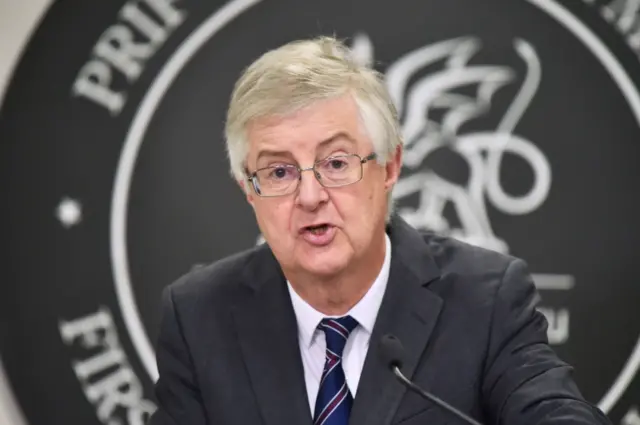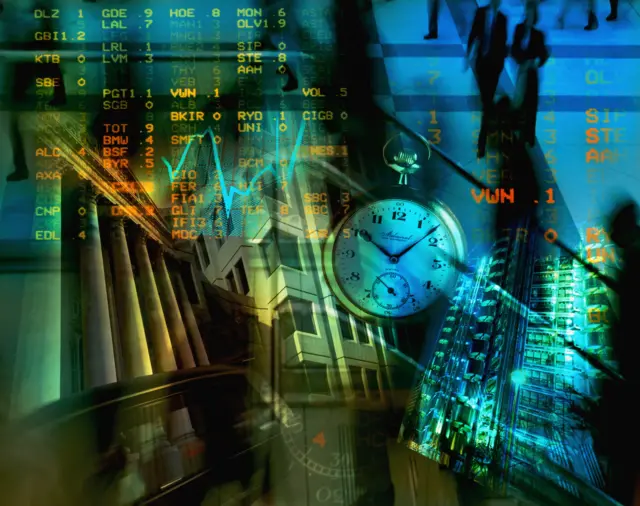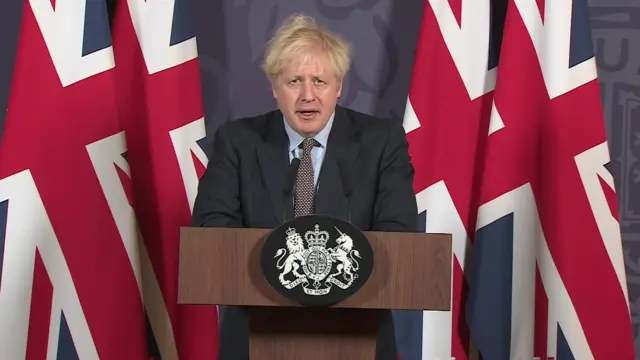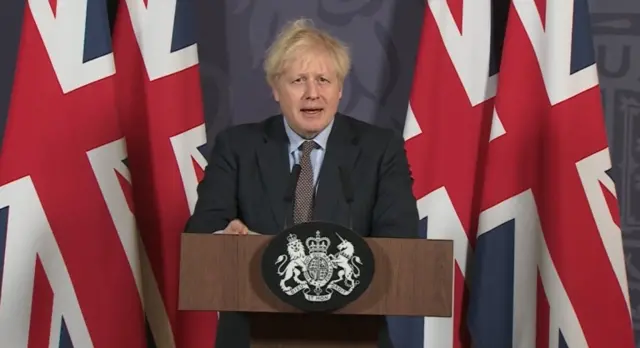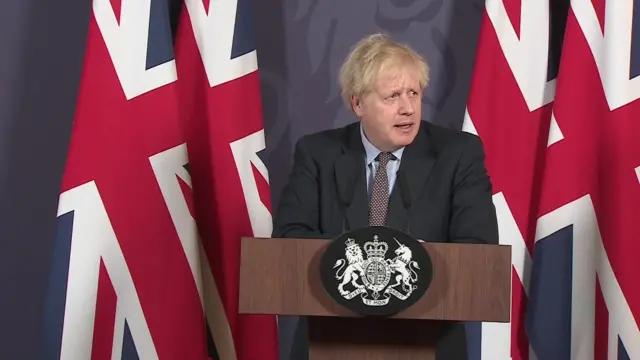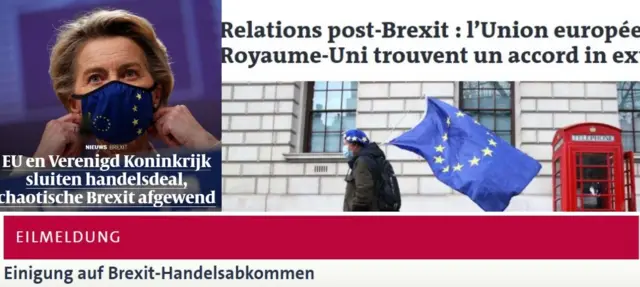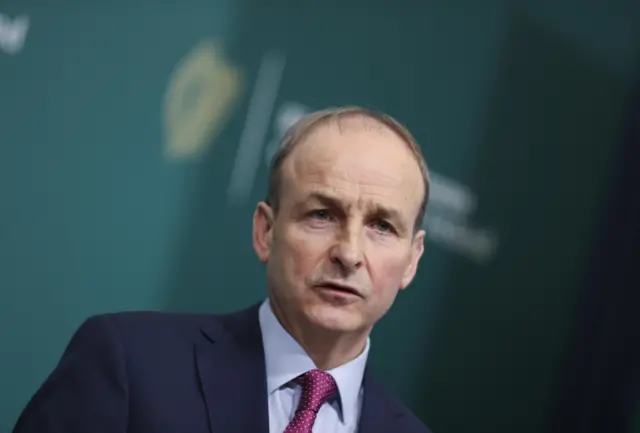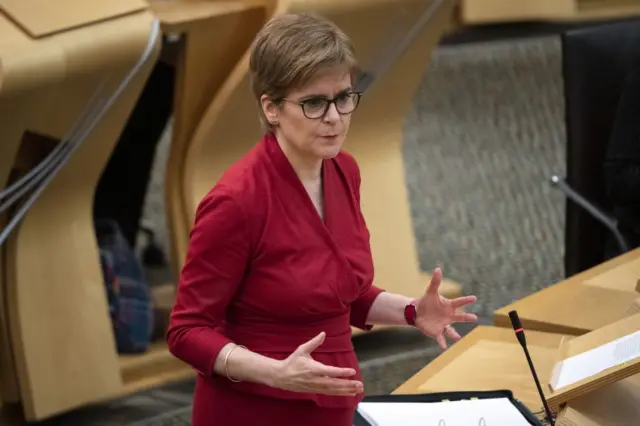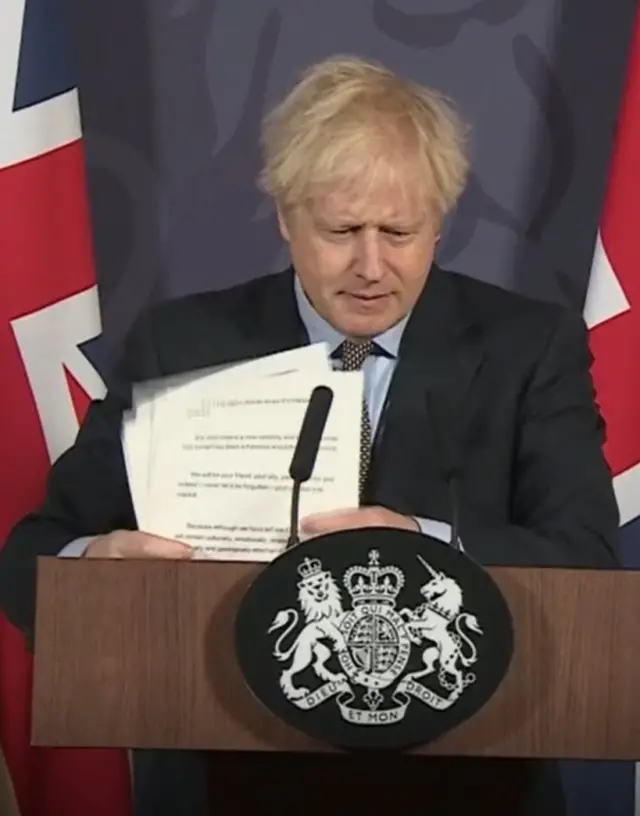Sensible trade deal was always most favourable outcome - NI first ministerpublished at 16:22 GMT 24 December 2020
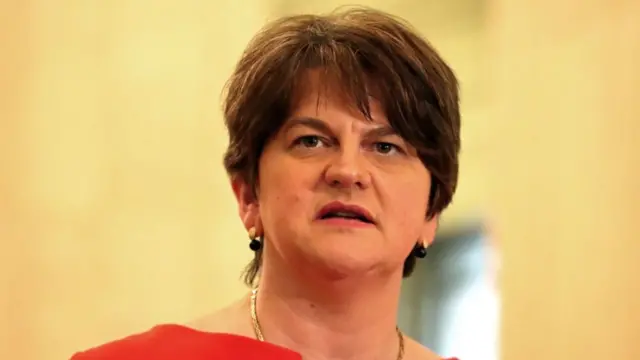 Image source, Getty Images
Image source, Getty ImagesNorthern Ireland's First Minister Arlene Foster said the Stormont Executive will examine details of the trade, as well as others issues such as security, "where agreement will be particularly important from the Northern Ireland viewpoint".
"Given the government's Northern Ireland Protocol, a sensible trade deal between the United Kingdom and the European Union was always the most favourable outcome for Northern Ireland," she said.
"Moving forward, we will continue to work to seize the opportunities and address the challenges which arise from the United Kingdom's exit from the European Union."
